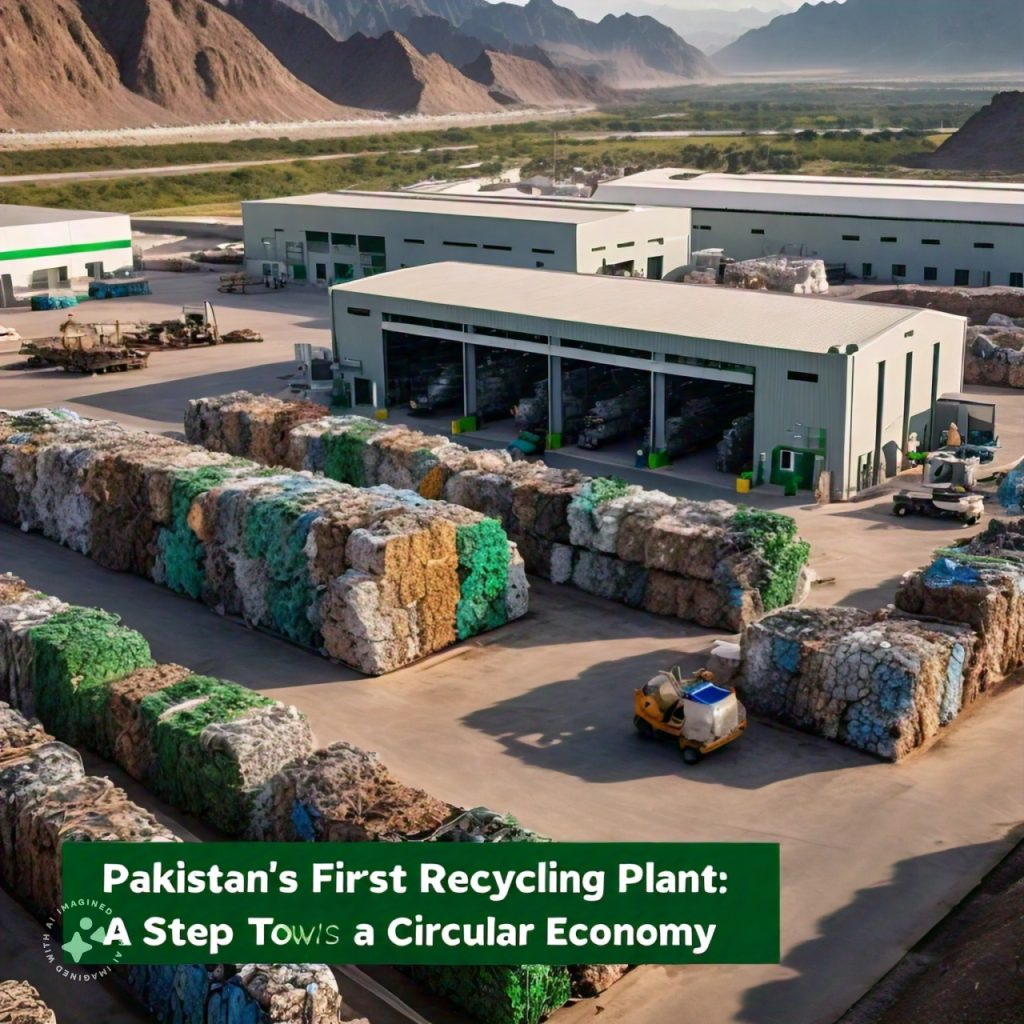Introduction:
Pakistan faces significant environmental challenges, including pollution, waste management, and climate change. The traditional linear economy model has contributed to these issues.
However, a new approach is gaining momentum – the circular economy. By adopting circular practices, Pakistan can reduce waste, promote sustainability, and drive economic growth. Transitioning to a circular economy can be a game-changer for Pakistan’s environmental and economic future.
The benefits of adopting circular economy principles include reduced waste and pollution, and increased economic opportunities. Strategies for implementing circular practices include recycling, upcycling, and composting.
Successful case studies and initiatives demonstrate the effectiveness of circular economy approaches. Government, businesses, and individuals have a crucial role in promoting a circular economy in Pakistan and creating a more sustainable future.
By working together, we can reduce waste, promote sustainability, and drive economic growth. Let’s explore the ways to implement circular economy practices in Pakistan and create a better future.
The Benefits of Circular Economy in Pakistan:
- Waste Reduction: Pakistan generates over 48,000 tons of waste daily, with only 30% being properly disposed of. Circular practices like recycling, upcycling, and composting can significantly reduce waste and minimize landfill waste. For instance, recycling just 10% of Pakistan’s waste can save 2.5 million trees and reduce greenhouse gas emissions by 1.2 million tons. Moreover, adopting these practices can also conserve natural resources, reduce pollution, and mitigate climate change. Furthermore, implementing circular economy principles can create new job opportunities and stimulate economic growth. Additionally, raising awareness and educating communities about the importance of circular practices can inspire behavioral change and promote a culture of sustainability. Ultimately, embracing circular practices can have a profound impact on Pakistan’s environmental and economic future.
- Environmental Conservation: The circular economy promotes the use of renewable energy, reducing reliance on fossil fuels and mitigating climate change impacts. Pakistan can reduce its carbon footprint by adopting sustainable energy sources like solar and wind power.
- Job Creation and Economic Growth: Circular economy practices can create new job opportunities in areas like product design, remanufacturing, and recycling. According to the Ellen MacArthur Foundation, the circular economy can create 1.8 million new jobs globally by 2030.
- Resource Efficiency: By reusing and recycling materials, businesses can reduce raw material costs and promote resource efficiency. This can lead to cost savings and increased competitiveness in the global market.

Implementing Circular Practices in Pakistan:
- Adopting Sustainable Agriculture: Encourage regenerative agriculture practices, reduce chemical usage, and promote organic farming to enhance soil health and biodiversity. This can be achieved through initiatives like permaculture training programs and organic farming certifications.
- Promoting Eco-Friendly Products: Encourage businesses to design and manufacture sustainable products, using recycled materials and minimizing packaging waste. For example, companies can adopt biodegradable packaging materials and reduce single-use plastics. Moreover, they can design products with recyclability and reusability in mind, thereby reducing waste and the continuous demand for new raw materials. Additionally, businesses can take the initiative to implement closed-loop production systems, cycling materials back into production to minimize waste and resource consumption. Furthermore, companies can proactively encourage customers to return used products, which they can then refurbish, recycle, or upcycle, reducing electronic waste and fostering a sharing economy. By taking these steps, companies can significantly reduce their environmental footprint and contribute to a more circular and sustainable economy.
- Implementing Waste Management Systems: Develop efficient waste collection and recycling infrastructure, and promote composting and anaerobic digestion. By forming public-private partnerships and investing in waste management technologies, the government and private sector can achieve this.
- Supporting Green Business: Encourage entrepreneurship and innovation in the circular economy sector, providing incentives for businesses adopting sustainable practices. The government can achieve this by offering tax breaks, subsidies, and access to funding for green startups.
- Education and Awareness: Raise awareness about the benefits of circular economy practices through education and community engagement, inspiring individuals to adopt sustainable lifestyles. This can be achieved through public awareness campaigns, workshops, and educational programs.
Success Stories in Pakistan:
- Pakistan’s First Recycling Plant: The Lahore Recycling Plant processes 1,000 tons of waste daily, producing recyclable materials and reducing landfill waste. This initiative has created over 500 jobs and saved 1.2 million trees.
- Sustainable Textile Production: Pakistani textile companies are adopting sustainable production methods, using recycled materials and reducing water consumption. This has led to a 20% reduction in energy costs and a 15% reduction in water usage.
- Eco-Friendly Packaging: Local businesses are switching to biodegradable packaging, reducing plastic waste and promoting a circular economy. This has led to a 30% reduction in plastic waste in the packaging sector.

Challenges and Opportunities:
- Infrastructure Development: Pakistan lacks adequate waste management infrastructure, making it challenging to implement circular economy practices.
- Policy Framework: A supportive policy framework is needed to incentivize businesses and individuals to adopt circular economy practices.
- Public Awareness: Raising awareness about the benefits of circular economy practices is crucial for widespread adoption.
Conclusion:
Implementing circular economy practices in Pakistan is crucial for a sustainable future. By adopting sustainable agriculture, promoting eco-friendly products, implementing waste management systems, supporting green business, and educating the public, we can reduce waste, promote environmental conservation, and drive economic growth. The challenges are significant, but the opportunities are vast. Let’s work together towards a greener, more sustainable Pakistan.



2 comments
Best Usa Proxies
January 7, 2025 at 12:53 am
you got a very fantastic website, Gladiola I noticed it through yahoo.
Fashion
February 3, 2025 at 3:36 am
Keep working ,impressive job!